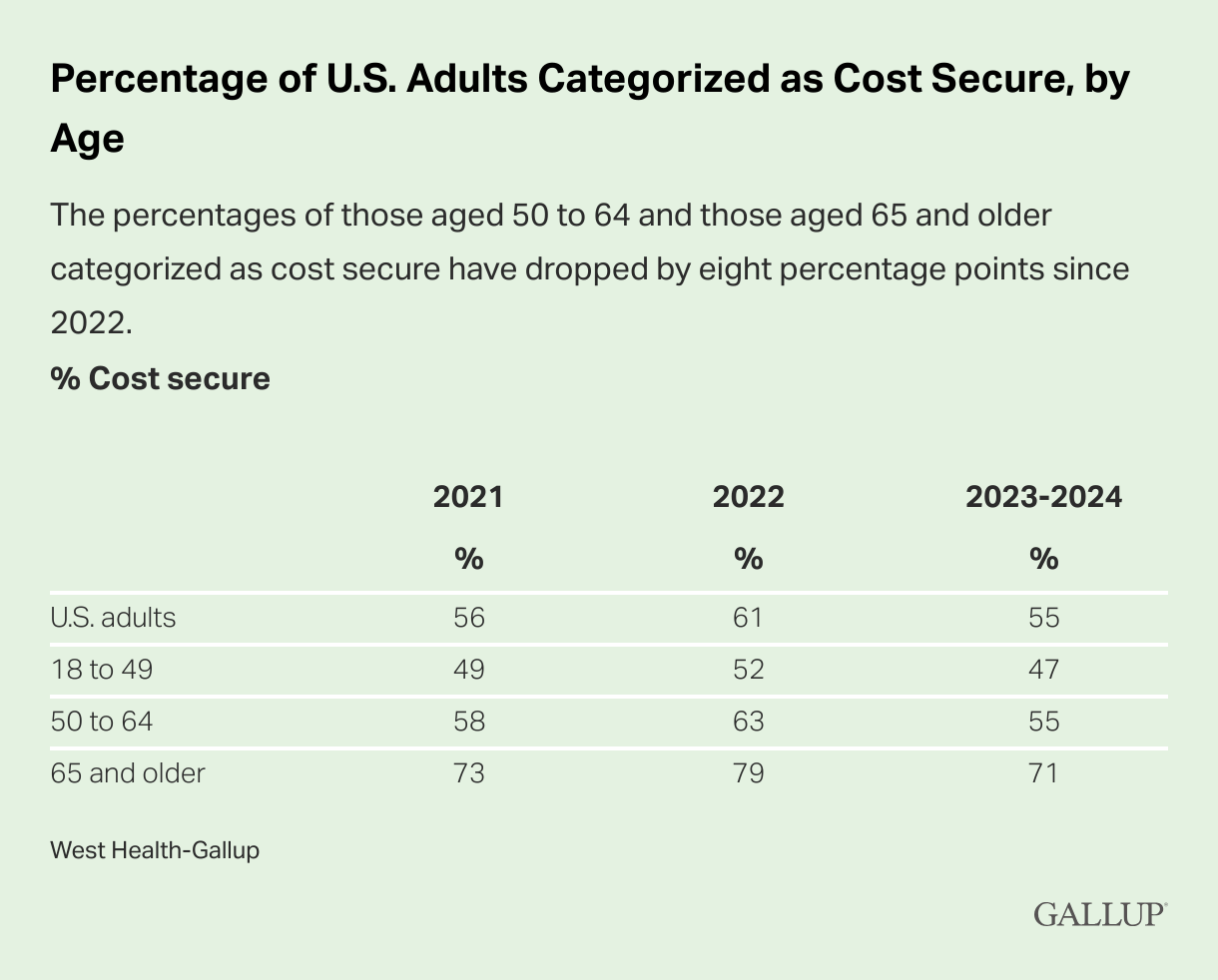Gallup: 45% of adults cannot afford the care they need
The number of adults who can afford the healthcare they need is rising, according to findings from a new survey by West Health and Gallup.
While most Americans surveyed said they are “cost secure” when it comes to paying for healthcare—including premiums, copays, prescriptions and medical bills—45% of adults reported having a problem coming up with the money. That number is six points higher than it was in 2022, and marks the highest percentage of respondents saying they struggle with costs since West Health and Gallup began the surveys in 2021.
When broken down by age, the survey findings show fewer young adults (18 to 49 years old) now say they are “cost secure,” dropping from 52% in 2022 to 47% in 2024. For adults between the ages of 50 and 64, the number stands at 55%—an eight-point drop since 2022.
Older adults (65 and older) also report more financial instability, with 71% saying they are “cost secure.” That, too, marks an eight-point decline since 2022.

Insecure and desperate
Overall, 45% of all U.S. adults in the survey said they are skipping appointments, forgoing medications or delaying care due to hurdles related to cost or access, the surveyors found. That number is worse for younger adults, of whom 53% reported delaying or skipping care.
To paint a fuller picture of the economic situation, the 45% of adults who reported struggling with medical access and cost were broken down into two groups, “cost insecure” and “cost desperate”—the latter meaning a person who cannot afford or access medical care at all.
Of respondents, a total of 8% fall into that bottom category.
The data was collected as part of West Health and Gallup’s survey on Aging in America, conducted between November 2023 and January 2024. The survey had 5,150 respondents.

